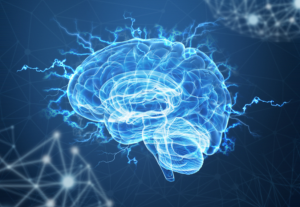 When we hear about dementia, it is commonly concerning the elderly; in America alone, more than 6 million suffer from some form of it. If someone in your life has been newly diagnosed, it’s essential to learn the facts of this disorder. There are currently a handful of myths about dementia, so let’s go through the most common ones to learn the truth behind them to understand better what dementia is and the associated risks.
When we hear about dementia, it is commonly concerning the elderly; in America alone, more than 6 million suffer from some form of it. If someone in your life has been newly diagnosed, it’s essential to learn the facts of this disorder. There are currently a handful of myths about dementia, so let’s go through the most common ones to learn the truth behind them to understand better what dementia is and the associated risks.
Myth 1: Dementia is a disease
Dementia is an umbrella term for symptoms affecting cognitive processes and the permanent loss of brain function. These symptoms affect memory, communication, mood, problem-solving, and other facilities we use every day. The symptoms exhibited by someone with dementia indicates a decline in these functions. Severity ranges, but loved ones will notice significant cognitive losses when dementia starts.
Myth 2: Alzheimer’s disease is the same thing as dementia
There are many different types of dementia that can be diagnosed under a variety of terms. Based on symptoms, specialists categorize dementia into one of the following conditions:
- Alzheimer’s dementia: Alzheimer’s is the most common dementia, accounting for 60-80% of all dementia cases. It causes changes in the brain due to proteins failing to function normally. Proteins abnormally build up in the brain, causing progressive loss of brain function.
- Parkinson’s disease dementia: Parkinson’s dementia is directly associated with Parkinson’s disease. Parkinson’s disease is a degenerative disorder that affects the central nervous system, affecting movement and motor skills. Eventually, Parkinson’s progresses to affecting more mental abilities, and may develop into Alzheimer’s disease.
- Vascular dementia: Vascular dementia is caused when oxygen and blood are cut off to the brain. The brain’s lack of oxygen and blood most commonly occurs because of a stroke or mini strokes. Early stages of this dementia are marked by difficulty with thinking speed and a decline in reason and judgment.
- Lewy Body dementia: Lewy body dementia is a term used to describe dementia with Lewy bodies and Parkinson’s disease dementia. Lewy bodies are abnormal clusters of proteins that form in the brain, causing adverse effects on the central nervous system and the autonomic nervous system. Lewy body dementias are the second most common type of dementia.
- Frontotemporal dementia: Frontotemporal dementia (FTD) is an umbrella term for the types of dementias that affect the frontal and temporal lobes of the brain. This type of dementia mainly affects behavior, personality, and communication.
Myth 3: Trouble recalling memories is a sign of dementia
Memory loss may be a sign of dementia, but it doesn’t mean all memory loss is a symptom. Human memory is not perfect; for some, it becomes less reliable with age. So, some trouble recalling memories and occasional forgetfulness is a natural part of aging. To assist our brain health, staying mentally active and eating nourishing foods is crucial.
If there are memory concerns for yourself or a loved one, speak with your doctor. In general, memory issues aren’t a cause for concern until they start affecting day-to-day life or creating life-threatening situations.
Myth 4: Dementia runs in my family so I will get it
Although dementia is genetic, genetics isn’t the only factor for those who get dementia. The most significant risk factor for dementia is age, and there is even evidence that many dementia cases don’t have a strong genetic link. Also, there is likely a genetic propensity for getting dementia if a parent or grandparent had Alzheimer’s before the age of 65. Frontotemporal dementia (FTD) also seems to have a more vital genetic link than other types of dementia, but early-onset Alzheimer’s and FTD in general are rare dementia diagnoses.
